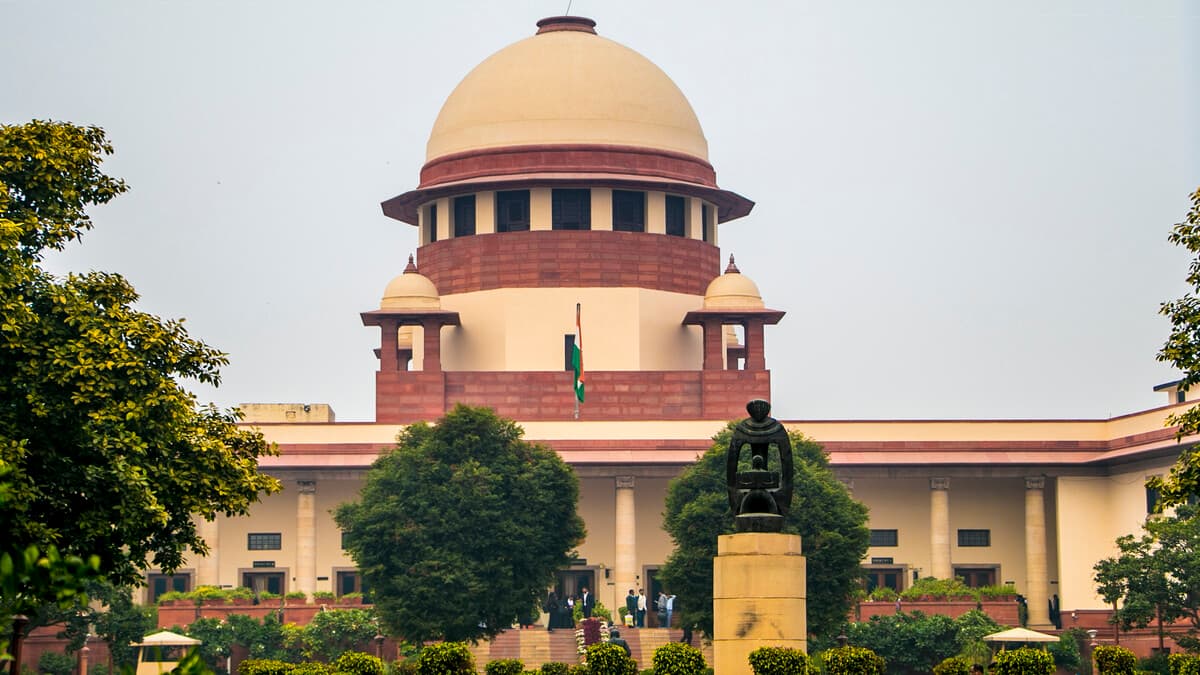NEP, PM SHRI: Tamil Nadu moves Supreme Court against Union govt’s mandatory implementation decision
K. Nitika Shivani | May 21, 2025 | 01:06 PM IST | 3 mins read
Centre can't unilaterally impose NEP 2020, PM SHRI schemes sans state consent, making SSA funds conditional violates constitutional provisions, says Tamil Nadu

The Tamil Nadu government has filed a civil suit in the Supreme Court challenging the Union government’s decision to implement the National Education Policy (NEP) 2020 and the Prime Minister’s Schools for Rising India (PM SHRI) scheme in the state without its consent.
The suit argues that the policies cannot be enforced on Tamil Nadu unless a formal agreement is entered into between the state and the central government.
PM SHRI Schools, envisioned to be model institutions across India, are part of the NEP’s implementation plan. The Centre aims to establish over 14,500 such schools to improve infrastructure, learning outcomes, and holistic education. Tamil Nadu has been opposed to the scheme and also the three-language policy implementation which the NEP mandates.
NEP, PM SHRI: Constitutional autonomy over policy
At the heart of the conflict is a Department of School Education and Literacy (DoSE&L) letter dated February 23, 2024, which states that the Samagra Shiksha scheme — a flagship central program supporting school education — has been fully aligned with the NEP 2020, effectively making adoption of these policies a condition for continued central funding.
The letter urged Tamil Nadu to promptly sign a Memorandum of Understanding (MoU) to begin selecting schools for inclusion under the PM SHRI scheme.
Tamil Nadu argues that education is a subject listed under the Concurrent List of the Indian Constitution which allows both the Union and state governments to legislate on it. Hence, the Centre cannot unilaterally impose NEP 2020 and related schemes without the state consent.
The state contended that the centre’s decision undermined the state’s constitutional rights and federal autonomy.
In its petition, the state highlighted existing legislations in Tamil Nadu, such as the Right of Children to Free and Compulsory Education Act, the Tamil Nadu Tamil Learning Act, 2006, and the Tamil Nadu Uniform System of School Education Act, 2010 which already set the framework for education and learning within the state, reflecting local languages, culture, and social priorities.
Tamil Nadu labeled the Centre’s demand illegal and arbitrary. It argued that making the receipt of funds under Samagra Shiksha conditional upon adopting NEP and PM SHRI schemes violates constitutional provisions and federal principles. It contended that the Centre cannot link funding to mandatory implementation of policies without the state’s agreement.
NEP, PM SHRI: Tamil Nadu suit in Supreme Court
In the suit filed in the Supreme Court, Tamil Nadu has requested the Supreme Court to declare that NEP 2020 and PM SHRI schools scheme are not binding on the state without a formal agreement and that linking of Samagra Shiksha funding to their implementation is unconstitutional, illegal, and arbitrary.
The state has urged the top court to declare the letters dated February 23 and March 7, 2024, from the DoSE&L null and void.
Tamil Nadu has also requested the Supreme Court to direct the centre to release pending funds amounting to Rs 2,291.30 crore, which includes a principal amount of Rs 2,151.59 crore plus future interest at 6% per annum from May 1, 2025, until full payment is made.
It has also asked for a directive to continue providing its share of 60% of grants-in-aid in order to implement the Right to Education Act before the beginning of every academic year.
The Supreme Court is yet to schedule the hearing on the suit.
Follow us for the latest education news on colleges and universities, admission, courses, exams, research, education policies, study abroad and more..
To get in touch, write to us at news@careers360.com.
Next Story
]West Bengal: Forcing summer vacation on hill schools has disrupted education, say teachers
In Darjeeling, Kalimpong, and Kurseong, vacations coincide with the monsoon. WB govt advanced summer vacations during Operation Sindoor and has ordered schools to remain shut, despite a new semester system and syllabus changes.
Pritha Roy Choudhury